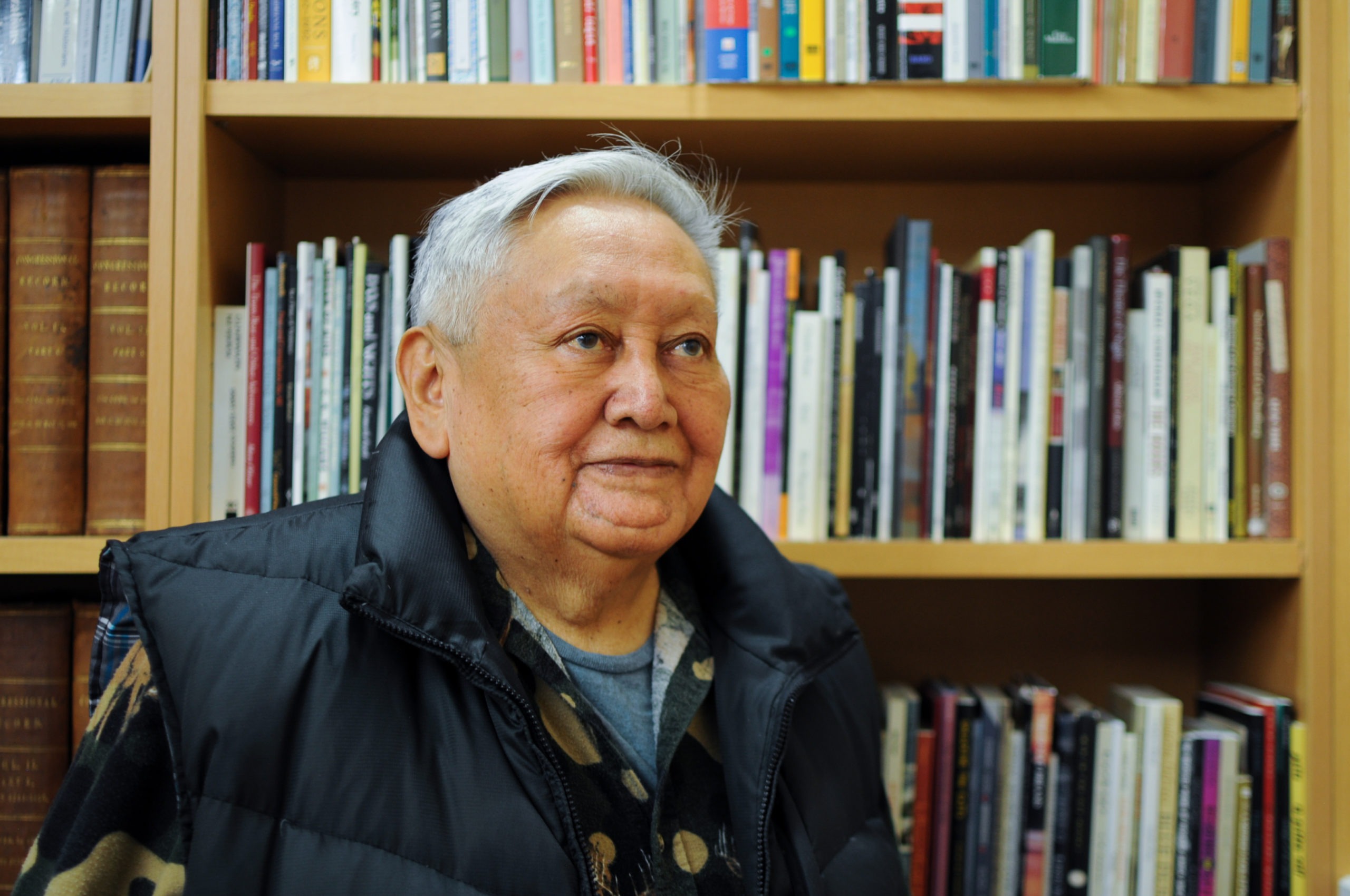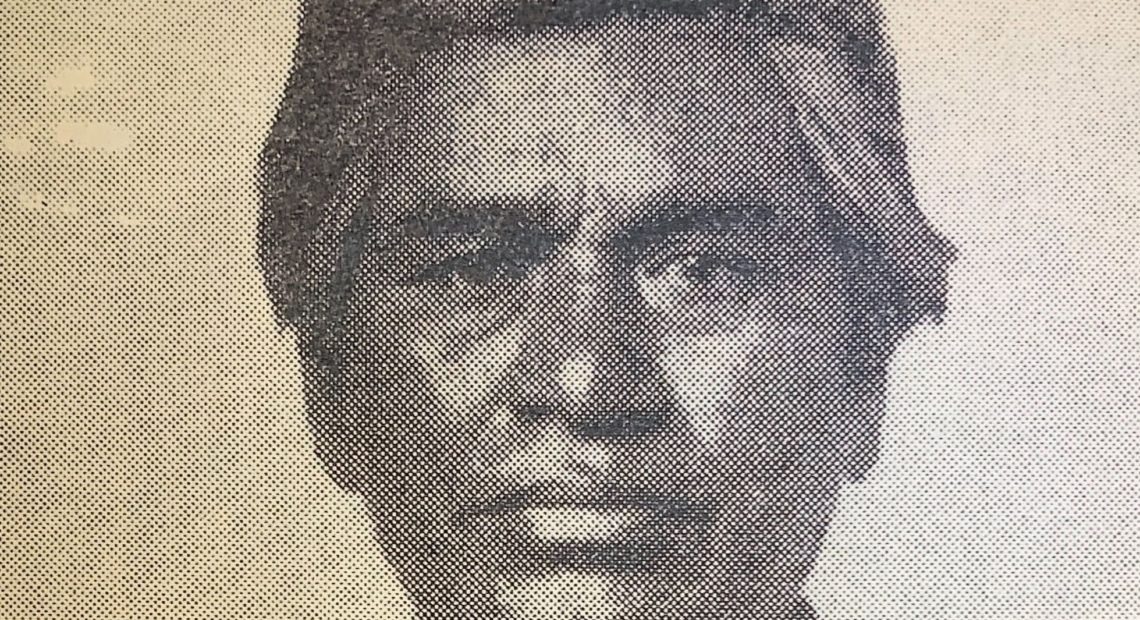
Louis Mann: A Yakama Nation Interpreter, Educator, Advocate Is Heard Again After 100 Years
Listen
The Treaty of 1855 created the Yakama Nation reservation as we know it today. In the decades after, the Yakama, Washington state, and the United States were trying to figure out their new relationship — one fraught with disagreements, court battles, and even war.
At the turn of the century, Louis Mann was in the middle of it all, working as an interpreter for the tribe. Now, audio recordings of Mann’s strong voice have resurfaced.
Alvin Shuster grew up hearing stories about his grandfather Louis Mann — about how he educated himself and learned to speak English, about his work for the Yakama Nation, interpreting for its chiefs in Olympia and Washington D.C.
Now 75, Shuster never thought he’d actually get to hear him.
“He died before I was born,” Shuster says. “When I heard his voice, it felt good. To hear your grandfather for the first time. The songs that he sang. It was nice to hear.”
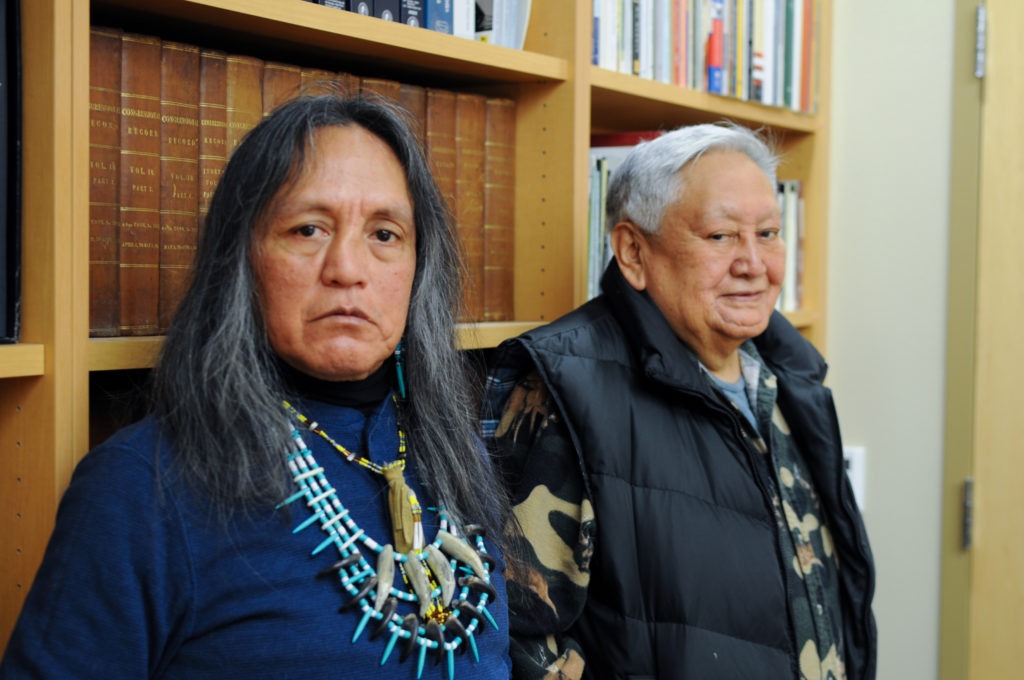
Alvin Shuster and his son Abraham on Jan. 8, 2020. Since finding recordings of their relative Louis Mann, they’ve been listening to digitized copies on repeat, hoping to learn the songs he recorded in 1909. “I thought it was pretty nice and amazing to hear it,” Abraham said of his great grandfather’s voice recordings. CREDIT: Enrique Pérez de la Rosa/NWPB
Photographer Edward Curtis recorded Louis Mann singing in 1909 using wax cylinders, which are fragile and prone to damage from mold.
Six recordings survived the test of time thanks to archivists at Indiana University. They include ceremonial prayer songs, a Klickitat Hand-Gamble song and a Yakama love song. The recordings are a part of Mann’s legacy that Shuster and the rest of the Mann family didn’t know about until last year.
Shuster says he wonders why his grandfather would agree to record the songs, especially the out-of-context prayer songs for funerals.
“I didn’t know how to take it other than, maybe he thought that when it got to (the year) 2000, everything could be gone and it was his way of preserving what happened,” Shuster says.
Carrying The Yakama’s Message
Around the turn of the 20th century, the Yakama Nation reservation was still relatively new. Tribal leaders were fighting a fishing rights case in the U.S. Supreme Court. They were fighting to keep Mt. Adams within the reservation boundaries.
That meant going to court, writing letters to congressmen, and signing documents — all in English. According to Shuster, his grandfather Louis Mann saw his role as an interpreter meant carrying the message of Yakama leadership to elected members of the government.
“He didn’t dress up in war chief regalia,” Shuster says, noting that Mann would instead wear suits. “He didn’t like to limelight himself. He’d rather stand in the back.”
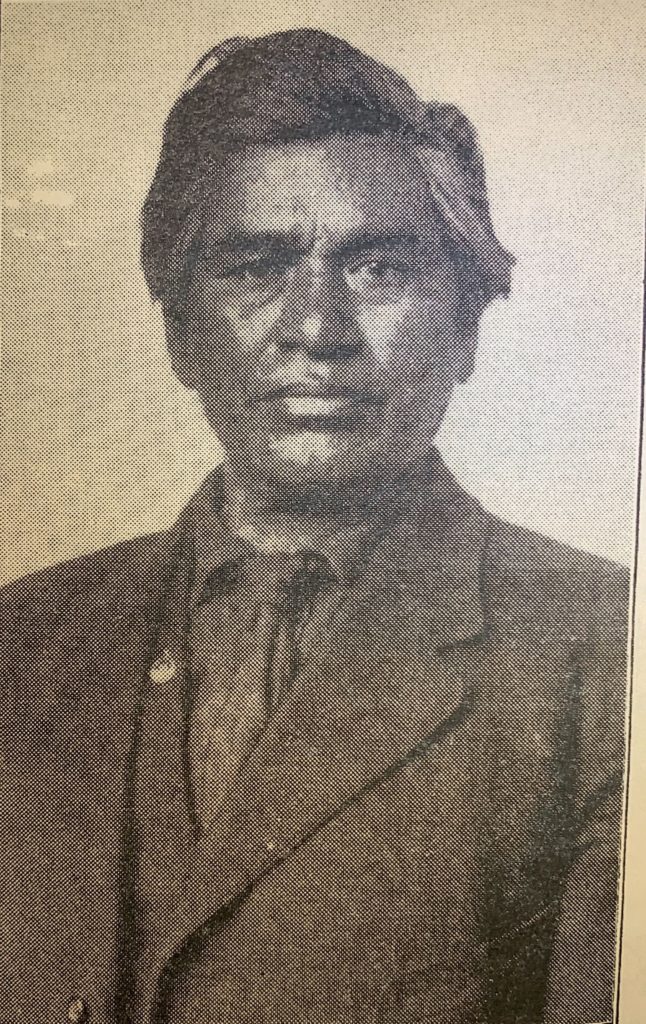
Louis Mann, photographed by Lucullus Virgil McWhorter, was an interpreter for the Yakama Nation in the early 1900s who also defended water and fishing rights of other tribal members through correspondence to U.S. government officials.
But Mann had a strong voice himself, evident in letters he wrote to the federal Bureau of Reclamation when the government sought to charge him and other tribal members for their water rights. He wrote in his correspondence: “Who in your office is too damn white to understand my water rights?” according to Emily Washines, a Yakama Nation tribal member and historian.
Washines tracked down Mann’s recordings and brought them to his descendants.
“(Mann) represented someone that was just vocal,” Washines said. “He just said it. He didn’t mince words about when he thought deals seemed to be unfair. Even if that was to the federal government.”
In a letter to President Calvin Coolidge, Mann wrote: “We ask you for a square deal. … We are infringed by state law, our treaty unrecognized.” In a letter to the chairman of the U.S. House Indian Affairs Committee, he wrote: “We want the white man to be honest and treat us right. Our words are done.”
Those strong words earned Louis Mann a nickname, according to Shuster.
“Our grandfather was called the ‘Bad Injun of Ahtanum’,” Shuster says, using a slur Mann reclaimed. “He didn’t comply with the government nor with what the non-Indians wanted to do. He would only find a way to protect our people. It’s a legacy. Those are big shoes to try to fit.”
Big Shoes
But Shuster did fit into those big shoes. After a career working in farms, logging and as a mechanic, Shuster started working as an advocate for education committees in the Yakima Valley. In the 1990s, he became chair of the National Congress of American Indians’ education subcommittee, where he pushed the Clinton administration to issue an executive order to make education of Native Americans a national priority.
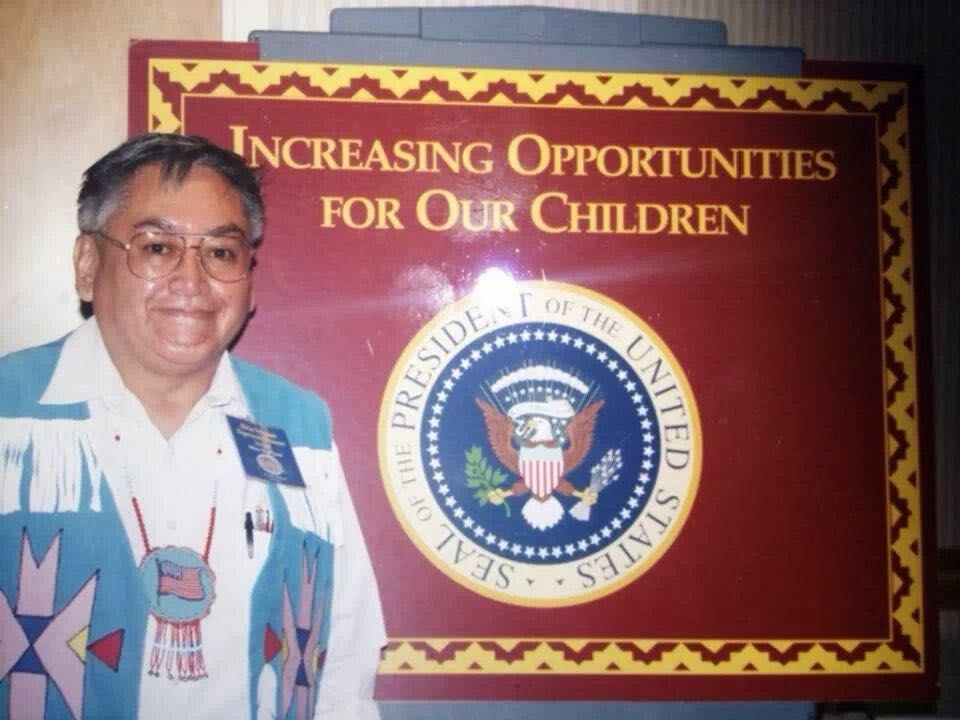
In the 1990s, Alvin Shuster became chair of the National Congress of American Indians’ education subcommittee. He pushed the Clinton administration to issue an executive order to make the education of Native Americans a national priority. Courtesy of Alvin Shuster
Shuster is thankful for his grandfather’s work and for the recordings Mann made with Edward Curtis. He hopes sharing the recordings will lead to more information about Mann and connect his family with other descendants they don’t know.
“We didn’t even know that there (were) recordings of Mann,” Shuster says. “Things that are kind of kept secret from us, we need to find out what those are.”
For Yakama historian Emily Washines, the recordings made her wonder what other photographs and recordings were gathered by people like Edward Curtis, who portrayed a romanticized image of what he thought were dying cultures.
“What does that mean for the descendants of people that were photographed by Edward Curtis?” Washines says. “How do we regard these photos, as yes, these are my actual relatives, and at the same time allow ourselves to be critical about the sentiments?”
Though the images and audio gathered by Curtis can be problematic, Shuster says his grandfather made the recordings to fight for his culture.
“When my grandfather did it 100 years ago, he thought of us and what I’m doing right now. I’m thinking about our yet unborn, just like he did.”
Related Stories:
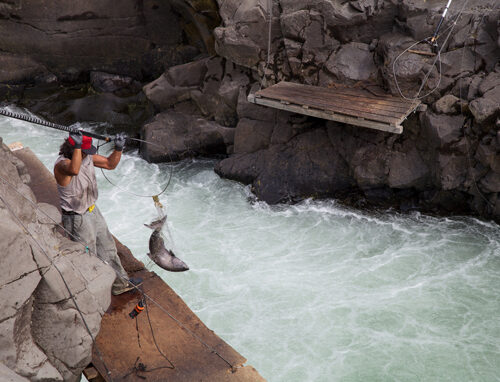
Fish hatchery transferred to Yakama Nation, upgrades underway
Yakama Nation tribal members fish in the Klickitat River for fall chinook salmon. The Yakama Nation recently gained ownership of a fish hatchery on the river. (Credit: USFWS – Pacific
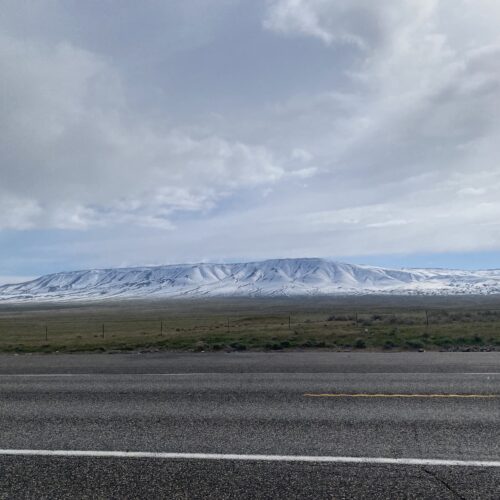
Hanford safety officer hired on by Yakama Nation
Rattlesnake Mountain on the Hanford site in 2022. The mountain is sacred to the Yakama Nation and other Northwest Indigenous tribes and bands near the Hanford site. (Credit: Anna King
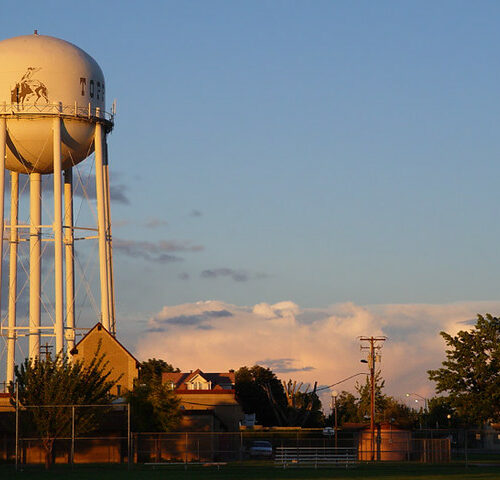
Yakama Nation, city of Toppenish in court battle over warming center
A water tower in Toppenish, Washington. The Yakama Nation is suing the city of Toppenish to be able to run a 24-hour warming shelter in the city on reservation land.

